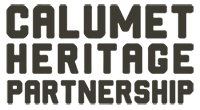Newsletter – September 2007
|
Calumet Heritage Partnership To identify, preserve and reclaim the natural, historical and recreational heritage of the Calumet region of Illinois and Indiana 13300 S. Baltimore, Chicago, Illinois 60633 (773) 646-0436 www.calumetheritage.org |
|
The next meeting of the Calumet Heritage Partnership will be held – Thursday, September 20, 2007 8TH ANNUAL HERITAGE CONFERENCE: Enclosed is the brochure for our 8th Annual Heritage Conference, “Beyond Artifacts: The Living Element in Industrial Heritage Areas,” which will be held on Saturday, October 14. Advance registration is recommended by Friday, October 5, to assure yourself space and a lunch. A few words about the conference that you won’t find in the brochure: It will be held in the fourth floor auditorium of Chicago State’s New Academic Library, a lovely new space just off of 95th Street at St. Lawrence. There are handicapped parking spaces immediately next to the library. Across the hall from the auditorium is a lovely “Sun room” area with a nice view northward across the neighborhood that will be used as exhibition space. If you or your organization has an exhibit on the region that you’d like to display, you should know that you can begin to set up as early as 7:30, that you can park in the lot next to the library for loading/unloading purposes but you will then need to move your car to the other lots, and that Mike Siola at 773 995 2964 will be happy to answer any questions about setup that you may have. The conference planning committee has tried to leave more room in this year’s schedule to view the exhibits. The conference’s theme was born from CHP’s experiences with its efforts at the Acme Coke Plant in Chicago. And while one of the sessions presents a further accounting of efforts with that project, we have tried to keep an eye on how this experience can inform broader regional efforts. This is especially the case in the keynote talk and in the presentation on the Chicago Labor Trail map. Sharon Ann Holt is a specialist in public history at Rutgers University, who has been the key person in coordinating the interpretive planning related to steel heritage in Bethlehem, Pennsylvania. Her talk is entitled “The Next Day, and the Next: Doing industrial History After Demolition.” This is what she writes about this presentation: “Industrial history is still a fledgling field in the 21st century, one in which most of the important questions have scarcely even been identified. Comparing industrial preservation and historical interpretation projects today with the struggles of previous generations to preserve colonial sites, Victorian neighborhoods and frontier towns reveals that each generation’s preservable past was the previous generation’s hideous junk. As a product of the late twentieth century, industrial history reflects a far greater sense of context and system than earlier visions of preservation. The Calumet region has a deep, rich vein of this kind of “industrial system” history to mine, with tentacles that embrace changing power sources, technological innovation, global transportation, the impact of wars, patterns of immigration, and policies of segregation. This talk will argue that evidence of the industrial past is, almost literally, everywhere, and that industrial history and preservation demand a kind of systemic approach that the Calumet area is ideally positioned to pursue.” For more on the Chicago Center for Working-Class Studies’ Labor Trail map, point your browser to www.labortrail.org. You’ll see at a glance that this is a terrific effort to bring this history that is “literally everywhere” to life. Leon Fink is certainly aware that the map stops at the state line, however, and he hopes that his presentation to CHP can open the dialogue about how to expand the next edition to the entire bi-state region. A BLOCKBUSTERTEAM! That’s what Frank Beberdick, his wife Ingrid and Kate Corcoran have become. Frank started what we now call the Acme Collection in 2005, when he and Ingrid sorted through a room full of blueprints for every building and piece of equipment at the abandoned Acme Coke Plant. Frank went on to organize a group to sift through the empty buildings at the Coke Plant, where they found a priceless collection of records and artifacts, including daily log books going all the way back to 1932! These are now stored in the North Tower of the Pullman Factory in Historic Pullman, waiting for the Calumet industrial heritage museum that will be developed there. Then Kate joined the team, and she and Frank have been performing miracles of historic preservation. THey worked with the South Suburban Historical and Geneological Society to loan CHP the board of directors minute books, which include very early materials from ByProducts Coke and Federal Furnace, a predecessor to Acme. These will be digitized at the Pullman State Historic Site – a project funded by a State of Illinois grant. Kate reports that 259 images from the Acme Collection are currently digitized in the database. Initial cataloging will be complete by September 14. Frank and Kate have also acquired a donation of materials from Interlake Steel’s former corporate council, as well as some Interlake newsletters and annual report. Interlake was the immediate predecessor of Acme at the Coke Plant site, 112th and Torrence. Meanwhile, they have been busy interviewing former steelworkers for oral histories. These include Al Buy, who started at Acme on Archer Avenue in 1938 (!!!) and John Zbos, who started at the Acme Blast Furnace in 1955. John was the man who arranged to have the signature smiling face/Have a Safe Work Day sign at the blast furnace site. Thanks to these great volunteers, the materials are being assembled that will enable a great story to be told about life and work in one important corner of the Calumet region. |

